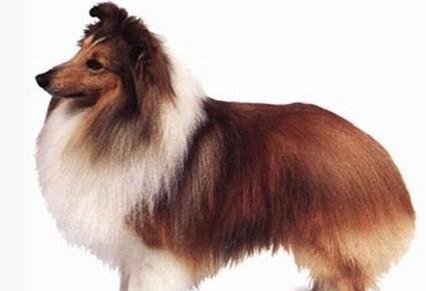The Shetland Sheepdog is a very good sheepdog, hardy, physically strong, wide-eyed, faithful, intelligent, reliable, and has a very wide range of use.
Variety Introduction
Chinese name: Shetland Sheepdog
Latin name: Shetland Sheepdog
Aliases: Shetland Sheepdog, Shetland Sheepdog
Kingdom: Animalia
Door: Chordate
Subphylum: Vertebrate subphylum
Class: Mammalia
Subclass: Subclass Thera
Order: Carnivora
Suborder: Canines
Family: Canine
Subfamily: Canine subfamily
Genus: Canis
Distribution area: UK, North America
FCI number: 88
Type: Medium dog
Shoulder height: 33-39.5cm
Weight: 5-10kg
Hair Length: Long Hair

Sheltie
Body Type
The Shetland Sheepdog is about 13 to 16 inches tall at the shoulder (about 33 to 41 cm).
Disqualification: Shoulder height greater than or less than standard size, is a disqualification and will be expelled from the game.
Header
Head: Delicate in appearance, viewed from above and in profile, the shape of the head is a long, blunt wedge, tapering from the ears to the nose.
Expression: The outline and lines of the head, the shape, position and posture of the ears, and the position, color and shape of the eyes, together form the expression.
Eyes: Medium in size, dark in color, almond shaped, set slightly slanted.
Ears: Small, pliable, set high, 3/4 erect, tip folded forward.
Defects: Set too low, hound-like drop ears, erect ears, bat ears, twisted ears.
Nose: Must be black.
Lips: tight.
Teeth: Straight and even, with a scissors bite.
Shetland puppies
Defect: The head is horned.
Neck, Topline, Body
Neck: Muscular, well arched, and of sufficient length to hold the head proudly.
Defects: The neck is too short and too thick.
Back: Level and muscular.
Chest: Deep, extending deep to the elbows.
Defects: The back is too long, too short, wobbly, or arched.
Tail: Fairly long, the end of the tailbone extending at least as far as the hock when the tail hangs down the hind legs.
Defects: Short tail with twisted ends.
Forequarters
Beginning at the withers, the shoulder blades slope forward at a 45-degree angle, sloping downward, extending to the junction with the upper arm.
Defect: The angle of the scapula to the upper arm is not enough.
Feet: Oval, compact, with well arched toes.
Hindquarters
The thighs are broad and muscular.
Defects: narrow thighs, bovine limbs, valgus hocks, unclear hocks.
The paws are the same as the forelimbs.
two-tone coat
Double coat, the outer coat is composed of long, straight and coarse hair, and the undercoat is soft, thick and dense, giving the coat a feeling of being "supported".
Tricolor
Defects: Whole or partial hair is short, flat, wavy, curly, soft or silky.
Color
Black, blue merle, or dark brown (from gold to mahogany) with varying degrees of white markings (with or without brown).
Tricolor merles, lacking merles or variegated colors, generally appear dull or faded tricolors.
Gait
The trot of the Shetland Sheepdog appears relaxed and smooth.
bi-blue
Well-developed forequarter muscles and ligaments, plus correct chest and rib structure.
Defects: Stiff movements, short stride, undulating gait, bumps.
Temperament
The Shetland Sheepdog is warm, loyal and friendly to its owner.
Defects: Shyness, timidity or nervousness.
